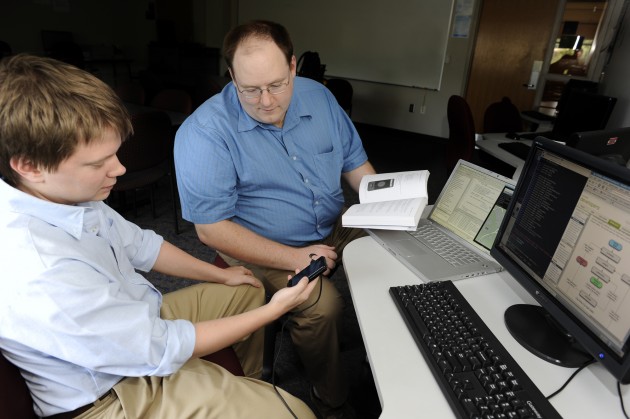
Western Carolina University computer science faculty members are capitalizing on student interest in the latest smartphones and their Internet and e-mail capabilities as a way to teach programming.
In a new course to be offered this fall, WCU students will write programs for mobile phone applications and test them on Motorola Droid phones, 15 of which were donated by Google.
“Carrying around one of these mobile phones is basically carrying a computer with you,” said Andrew R. Dalton, the assistant professor of computer science who is developing the class. “Helping students learn to program for these types of devices, which have different limitations and constraints than laptop or desktop computers, will be beneficial to them as computer scientists.”
To enroll, students must have completed two prerequisite courses at WCU in which they learn Java, a computer programming language used by the mobile devices. Class assignments will begin with creating simple applications, such as a to-do list, and will increase in complexity.
“One of our goals is to develop a WCU-specific app, perhaps an app to use when touring the campus,” said Mark Holliday, professor of computer science who applied for an $8,000 grant from the National Science Foundation that is helping support the initiative.
For Chris Blades, a senior computer science major from Lenoir, developing mobile applications is interesting in part because of the different hardware that the devices use, such as touch screens, and in part because of the variety of their networking devices—cell phone networks, Wi-Fi and Bluetooth.
“They make an ideal platform for developing network-oriented programs,” Blades said.
He is working with Dalton this summer to design and prepare the course, and he predicts it will be popular.
“Every computer science major I know who is able to take the class is taking it,” said Blades.






